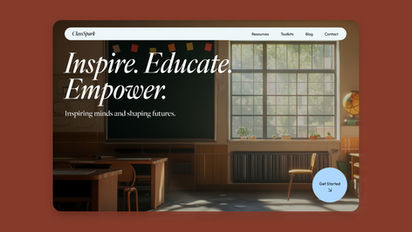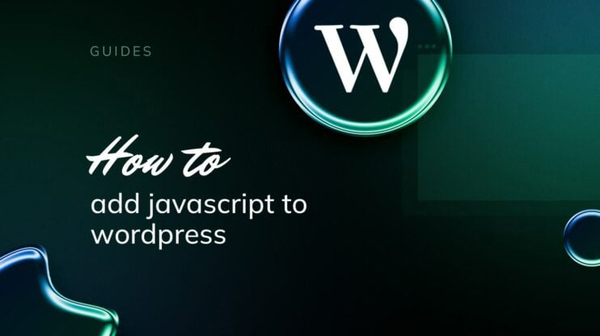Asymmetrical Layouts and Overlapping Elements in Web Design
The Benefits of Asymmetrical Layouts and Overlapping Elements in Web Design
Asymmetrical Layouts and Overlapping Elements in Web Design
Search Engine Optimization (SEO) is a crucial aspect of marketing in today’s digital world. In order to get your website noticed by search engines like Google, Bing, and Yahoo, you need to understand and implement SEO techniques. This SEO marketing tutorial will guide you through the basics of SEO, helping you drive traffic to your website and improve your online presence.

How to Asymmetrical Layouts and Overlapping Elements in Web Design
Asymmetrical Layouts and Overlapping Elements in Web Design
Benefits of a One Pager Website:
1. Simple and Easy to Navigate: One pager websites are designed to be simple and easy to navigate, making it easier for visitors to find the information they need quickly and efficiently.
2. Cost-Effective: Building a one pager website is more cost-effective than a traditional multi-page website. You can save on hosting fees, design costs, and maintenance fees by having a single webpage.
3. Mobile-Friendly: With the increasing use of mobile devices, it is important to have a website that is responsive and mobile-friendly. One pager websites are designed to be easily viewable on all devices, ensuring a seamless user experience.
4. Improved SEO: Having a one pager website can improve your search engine rankings as it allows you to focus on specific keywords and content. This can help drive more traffic to your website and increase your online visibility.
5. Quick Load Times: One pager websites have faster load times compared to multi-page websites, ensuring that visitors can access your site quickly and easily.
How to Build a One Pager Website:
1. Define Your Goals and Target Audience: Before you start building your one pager website, it is important to define your goals and identify your target audience. Determine what you want to achieve with your website and who you are trying to reach.
2. Choose a Website Builder: There are several website builders available that make it easy to create a one pager website without any coding knowledge. Popular website builders include Wix, Squarespace, and WordPress. Choose a platform that best suits your needs and budget.
3. Select a Template: Most website builders offer a variety of templates to choose from. Select a template that aligns with your brand and conveys the message you want to communicate to your audience.
4. Customize Your Design: Once you have selected a template, you can customize the design of your one pager website. Add your logo, choose a color scheme, and upload high-quality images that represent your business effectively.
5. Create Compelling Content: The content on your one pager website should be concise, engaging, and informative. Include a brief overview of your business, highlight your products or services, and provide contact information for visitors to reach out to you.
6. Include Calls to Action: Encourage visitors to take action on your one pager website by including clear and compelling calls to action. This could be signing up for a newsletter, requesting a quote, or making a purchase.
7. Optimize for SEO: Improve the visibility of your one pager website by optimizing it for search engines. Use relevant keywords, meta tags, and alt text for images to improve your search engine rankings.
8. Test and Launch: Before launching your one pager website, make sure to test it on different devices and browsers to ensure that it is functional and looks great. Once you are satisfied with the design and content, you can launch your website and start promoting it to your target audience.
A web designer’s primary goal is to create a visually appealing website that engages users and encourages them to explore further. This involves using a combination of technical skills and creativity to design a layout that is both aesthetically pleasing and easy to navigate. Web designers must also have a good understanding of user experience (UX) design principles to ensure that the website is intuitive and user-friendly.
In addition to creating the overall design of a website, web designers are also responsible for implementing various features and functionalities. This includes integrating multimedia elements such as images, videos, and animations, as well as creating interactive elements like buttons, forms, and drop-down menus. Web designers may also be responsible for optimizing the website for search engines (SEO) to help improve its visibility and ranking in search results.
To be successful as a web designer, one must possess a strong foundation in graphic design principles, as well as a good understanding of web development technologies such as HTML, CSS, and JavaScript. These skills are essential for creating visually appealing and responsive websites that work seamlessly across different devices and browsers.
Web designers often work closely with clients or project managers to understand their requirements and objectives for the website. This involves conducting research, brainstorming ideas, and creating mock-ups or wireframes to present to the client for review and feedback. Once the design is approved, web designers then proceed to code and develop the website using various programming languages and tools.
There are many different types of web designers, each with their own area of expertise. For example, graphic designers specialize in creating visual elements such as logos, icons, and illustrations, while user interface (UI) designers focus on designing the layout and overall look and feel of a website. User experience (UX) designers, on the other hand, are more concerned with how users interact with the website and how to improve their overall experience.
The role of a web designer can vary depending on the size and scope of the project. For small businesses or individuals looking to create a simple website, a web designer may be responsible for all aspects of the design and development process. However, for larger, more complex projects, web designers may work as part of a team alongside web developers, content creators, and digital marketers to bring the website to life.
In addition to technical skills, successful web designers also possess strong communication and problem-solving abilities. They must be able to effectively communicate their ideas and collaborate with others to bring a project to completion. Web designers must also be able to adapt to changes and solve problems quickly and efficiently, as technology and design trends are constantly evolving.

Asymmetrical Layouts and Overlapping Elements in Web Design in 3 Steps
Asymmetrical Layouts and Overlapping Elements in Web Design
In conclusion, building a one pager website is a simple and cost-effective way to establish an online presence for your business. By following the steps outlined in this article, you can create a visually appealing and informative website that effectively promotes your brand and attracts new customers. So why wait? Start building your one pager website today and take your business to the next level.


